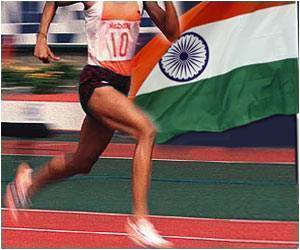Olympics Committee and World Anti-doping Agency have joined hands to prevent sportspersons from winning medals using performance enhancing drugs.

What are these performance-enhancing drugs and why exactly do sportspersons take them? Drugs like anabolic-androgenic steroids, often referred as steroids are taken to grow more muscles. Diuretics such as drug Acetazolamide dilute urine to make the athlete lose weight. This helps athletes to compete in lower weight class. Creatine is used to give an added boost of energy. The most widely used drug is androstenedione, which increases the level of testosterone in the blood, which increases the heart rate and decreases fatigue. Even after knowing the risks involved in taking such drugs, athletes decide to risk their lives and opt for them. The side effects of using steroids are bald patches on the head, severe acne, increased amount of lipoproteins in the blood, hypertension, heart and circulatory problems, masculine and manly-features in women, deepening of voice and in case of prolonged use it leads to death.
The first sportsperson identified using drugs to enhance athletic performance was Thomas Hicks, the winner of the 1904 Olympics Marathon. After this victory, death of few athletes was seen due to overdose of steroids. Rumors about doping and death started hovering in the Olympics Games and other international sports and games.
The Olympic Committee decided to act against it and banned the use of drugs in the Olympic and Winter Games. But it wasn’t easy to detect the doped athletes in the games. This led to the formation of an independent organization called World Anti-Doping Agency (WADA) in 1999. WADA developed a list of drugs forbidden in the Olympics and other athletic events. They established labs to check and detect the presence of these drugs in the blood and urine of sportspersons.
WADA has helped to filter the participants and prevent the doped players from winning in an unethical or unfair way.
Since establishment of WADA, there have been many cases where the athletes were dismissed from the games and were banned for a few years from participating in any other games. But controversies about doping in athletics have not ended yet. According to statistics, doping in the Summer Olympics (0.49%) have nearly doubled the percentage of the Winter Olympics (0.28%). Weightlifting is the most doped sport in Olympics with up to 40 reported violations of the anti-doping rules.
With London Olympics round the corner, WADA has taken steps to assure that there would be a clean and healthy competition this year. Sport officials and sports fans are also hoping new athletes will depend more on themselves and not be tempted to depend on drugs for their success in Olympics 2012.











